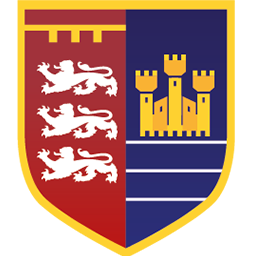Music
'Music is the universal language of all mankind and surrounds our everyday lives.'
Henry Wadsworth Longfellow
Curriculum Intent
We believe all students deserve a creative and exciting Music curriculum that is ambitious and rich in knowledge. Through the exploration of music we aim to ensure that all students gain enjoyment, satisfaction and understanding of music through composing, performing, listening and appraising of a wide range of experiences that covers, popular, classical, jazz and world music styles. In line with the Trusts vision, we want all young people to ‘make outstanding progress’ through a Music curriculum that aims to engage and inspire students to develop a growing love of music, developing not only their talent as musicians but foster an appreciation of music as an essential part of their lives.
Careful consideration has been, and continues to be, put into developing the Music curriculum; the curriculum spirals and is planned and sequenced so that new component knowledge and skills build on what has been previously taught; key techniques and skills are routinely being revisited throughout years 7 -11.
Students will be taught units of work that cover and go beyond the requirements of the national curriculum and this should enable students to:
- Have an understanding of the world of music through the specific disciplines of performance and composition as well as understanding how music can impact on different audiences.
- Developing the confidence, communication and team work skills of all students, which prepares young people to confidently live, communicate and work in the wider world.
- Opportunities to focus on specific aspects of performance skills encouraging students to think, act and speak like those working in the field.
- Develop a repertoire of musical vocabulary which aids the students’ knowledge and understanding, not only of the genres of music they are exploring but of music in the wider world.
- Develop practical skills and the ability to perform on their chosen specialist instrument to a proficient level.
- Develop their use of ICT in their music studies through the exploration of music composition, using music sequencers used by professional musicians to create music.
- Develop their ability to analyse and evaluate music when discussing music, promote projection and clarity when students evaluate and perform, providing them with the skills to be able to confidently articulate what went well and what they need to do to improve.
Music has an important role in developing students’ cultural capital. Studying music helps ensure that students of all backgrounds, abilities and cultures have access to stimulating musical experiences and opportunities to participate. Our practical based curriculum focuses on both group and individual skills and supports the growth of confident students who are resilient and able to break through challenges, demonstrating creative skills, independence, and the ability work with and lead others.
Some examples of music genres explored and key issues that are discussed are; the development of music over time, historical links to music, how historical events have shaped the music of today, the music industry as an organisation and careers in the industry, copyright, racism and through discussions of key musical concepts, experiences gained from co-curricular, trips, talks of understanding the application of music qualifications, careers, the knowledge and skills practically used in music, the department builds on students’ music capital.
Curriculum Content
Each department has carefully developed curriculum plans in line with our curriculum intent. The curriculum overview for each year group in this subject can be found below.


